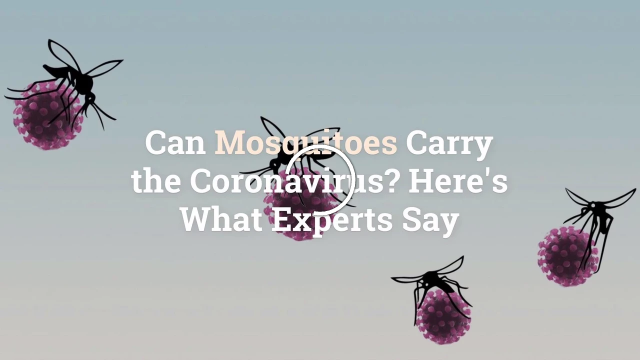Med Visible Podcast host Harper Sparrow weighs in on how to cope during a coronovirus crisis if you have a chronic illness.
While the coronovirus epidemic is prolonging normal life for everyone, it poses a special threat to people with an invisible disease - in other words, a chronic disease or condition that is not always obvious to other people but the day. -Daily navigate life. a challenge.
Many who live with an invisible disease rely on the availability of doctors, pharmacies and social activities to make their lives as normal as possible. With people closing shops and practicing social disturbances, the physical and emotional health of people suffering from invisible disease can be endangered.
Harper Sparrow, founder of Made Visible Podcast, knows what it sounds like. Sparrow has hyper-IgE syndrome, a genetic condition that makes her immune system extremely sensitive and puts her at high risk of developing serious complications if she contracts coronovirus. As part of our ongoing Invisible Illness series, Health spoke to Sparrow about what people like him are doing right now, and what resources are offering help.
"There are a lot of people with invisible diseases on my podcast, and what I'm hearing a lot about is that they use it," says Sparrow. "People are finally beginning to understand what it's like to isolate it and worry about their health all the time, which is something that people with invisible diseases have been living with for years."
Sparrow explains that even before the outbreak of COVID-19, he often had to ask his guests to call him remotely if they said he was ill with a contagion — otherwise his own health was at stake. "Right now, we are at a much higher risk than usual, but the people who need to be most cautious are the ones who need the most help," she says.
She points out that many people suffering from invisible illnesses rely on weekly doctor appointments and frequent visits to the pharmacy. With hospitals postponing visits from some patients to shut down coronovirus sufferers and stores, they receive the necessary support to manage their disease until calls are made to stop social distractions. Cannot be able to
While the epidemic continues and restrictions remain in place, Sparrow recommends that people with invisible diseases seek resources to stay mentally and physically healthy. Here are five recommendations:
 |
| Coronavirus disease |
While the coronovirus epidemic is prolonging normal life for everyone, it poses a special threat to people with an invisible disease - in other words, a chronic disease or condition that is not always obvious to other people but the day. -Daily navigate life. a challenge.
Many who live with an invisible disease rely on the availability of doctors, pharmacies and social activities to make their lives as normal as possible. With people closing shops and practicing social disturbances, the physical and emotional health of people suffering from invisible disease can be endangered.
Harper Sparrow, founder of Made Visible Podcast, knows what it sounds like. Sparrow has hyper-IgE syndrome, a genetic condition that makes her immune system extremely sensitive and puts her at high risk of developing serious complications if she contracts coronovirus. As part of our ongoing Invisible Illness series, Health spoke to Sparrow about what people like him are doing right now, and what resources are offering help.
"There are a lot of people with invisible diseases on my podcast, and what I'm hearing a lot about is that they use it," says Sparrow. "People are finally beginning to understand what it's like to isolate it and worry about their health all the time, which is something that people with invisible diseases have been living with for years."
Sparrow explains that even before the outbreak of COVID-19, he often had to ask his guests to call him remotely if they said he was ill with a contagion — otherwise his own health was at stake. "Right now, we are at a much higher risk than usual, but the people who need to be most cautious are the ones who need the most help," she says.
She points out that many people suffering from invisible illnesses rely on weekly doctor appointments and frequent visits to the pharmacy. With hospitals postponing visits from some patients to shut down coronovirus sufferers and stores, they receive the necessary support to manage their disease until calls are made to stop social distractions. Cannot be able to
While the epidemic continues and restrictions remain in place, Sparrow recommends that people with invisible diseases seek resources to stay mentally and physically healthy. Here are five recommendations:
Beyond My Battle
Beyond My Battle offers a "COVID-19 Battle Kit" that is full of free and charity-based resources, including guided meditation, art activity ideas, and yoga and exercise classes at home. People can also access relevant podcasts and articles to help educate others with chronic illnesses to stay safe.
Wana
The Wana app gives people with invisible diseases a community right at their fingertips. This app lets you chat with others with chronic illnesses, join groups focused on a specific disease, and provides a library of health information for some of the most common chronic diseases. In an era of social distance and isolation, this app is a great way to promote connection from a distance.
Chronically Capable
People with chronic illness need to worry about what their employment status is. Chronically enabled is a job-hunting site that features flexible jobs specifically for people with disabilities or chronic illnesses. On-site companies allow employees to work remotely to accommodate their needs.
Virus Anxiety by Shine
Virus Anxiety from Shine provides a compendium of resources for those experiencing coronovirus-induced anxiety. The articles manage social isolation and financial apprehensions.
Made Visible
Sparrow's podcast, Made Visible, addresses coronovirus concerns and explores coping mechanisms for people with invisible diseases. The episode features inputs from doctors, experts, and people suffering from invisible illnesses, who share information about staying safe and healthy at a time when no one knows when the epidemic will end.
The information in this story is accurate as of press time. However, as the situation around COVID-19 continues to evolve, it is possible that some data may have changed since publication. While Health is trying to keep our stories as up to date as possible, we encourage readers to stay informed on news and recommendations for their own communities using the CDC, WHO and their local public health department as resources .






No comments:
Post a Comment